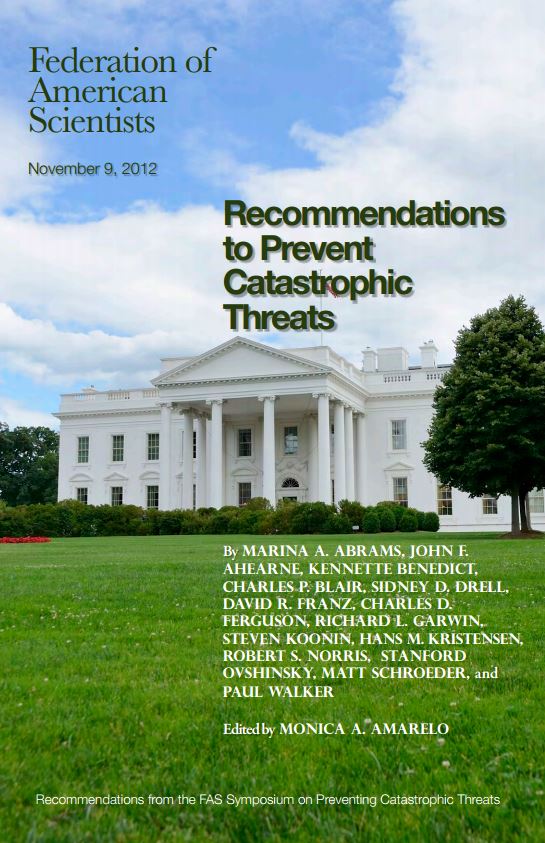
Recommendations to Prevent Catastrophic Threat
Only three days after the 2012 national election, FAS hosted a day-long symposium that featured distinguished speakers and provided recommendations to the Obama administration on how best to respond to catastrophic threats to national security at the National Press Club in Washington, DC.
These experts addressed the policy and technological aspects of conventional, nuclear, biological and chemical weapons; nuclear safety; electricity generation, distribution, and storage, and cyber security. These policy memoranda call for a coordinated national effort to prepare for, prevent and respond to catastrophic threats to the United States.
The last remaining agreement limiting U.S. and Russian nuclear weapons has now expired. For the first time since 1972, there is no treaty-bound cap on strategic nuclear weapons.
The Pentagon’s new report provides additional context and useful perspectives on events in China that took place over the past year.
Successful NC3 modernization must do more than update hardware and software: it must integrate emerging technologies in ways that enhance resilience, ensure meaningful human control, and preserve strategic stability.
The FY2026 National Defense Authorization Act (NDAA) paints a picture of a Congress that is working to both protect and accelerate nuclear modernization programs while simultaneously lacking trust in the Pentagon and the Department of Energy to execute them.